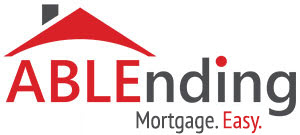Getting The Best Commercial Mortgage Rate
Trying to get the best commercial mortgage rate is perfectly understandable, after all a fraction of a percentage point can make a huge difference to the repayments on a larger commercial loan. However, when searching for a competitive rate you should bear in mind that the broker or lender is going to need plenty of information to support the enquiry.
Imagine if you will that someone puts a box containing a 300 piece jigsaw puzzle in front of you, shows you only ten pieces and says ”Describe the picture to me” – what are the chances you would be able to do it? You may be able to say “Well, it looks as if it’s a sunny day and I think I can make out part of a tree” but apart from that very little.
This may sound like an irritating evasion of the issue but the question ”I’m looking for a commercial mortgage, what’s the best rate you can get me ?” is equally difficult to answer if a useful response is expected. Not least because different people have a quite different understanding of what types of commercial mortgage will qualify for a headline rate.
Of course there are some brokers who will quote you a very favourable rate “off the top of their head.” This is a little disingenuous in that any rate will be largely meaningless and is probably made in the hope that they can impress the potential client and give him reason to return to them first.
Without doubt the best commercial rates are only available from the mainstream banks, including the likes of HSBC, Barclays, RBS etc. and some other commercial lenders such as The Skipton and Norwich & Peterborough Buildings Societies.
Remember though, before these organisations will consider offering their best rates they are going to want to know quite detailed information about the business they are lending money to, the people who control the company and full details about the property.
Typically speaking the best rates are only available for established businesses with a clean credit history and plenty of good quality and verifiable accounting information. Professional property investors are also generally considered good quality applicants, but only if the rental income stacks up. The following points should explain what a lender would generally look for:
1. Established Business: Would mean that the business has been profitably trading for about 3 years.
2. Good quality and verifiable accounting information: Accounts that have been professionally prepared by a qualified accountant and if appropriate filed at Companies House.
3. Clean Credit: All existing loans and mortgages are up to date, no late payments to suppliers. No CCJ’s either in the business name or the individual director’s personal names.
4. Investment properties would usually need to have a formal lease in place with a good quality tenant. The rental income will need to cover the mortgage payments by a healthy margin.
The above points only relate to applicants chasing the headline rates. There is now a good degree of flexibility for businesses who cannot fulfil the above criteria.
When approaching a lender or broker with a view to obtaining the best possible commercial mortgage rate (or re-mortgage) an applicant should be prepared to divulge all the above information before expecting a sensible answer. At the very least it would be recommended to have the last three years’ accounts, brief CV’s for each director, an up to date business plan and as much information as you can muster about the property in question.
There is no doubt that there are some very competitive mortgage rates available for the right businesses and researching the market has never been more important. By all means approach your existing bankers first as they most likely to be keen to keep your business but having other options available puts you in the strongest position when looking for the best commercial mortgage rate.

Leave A Comment